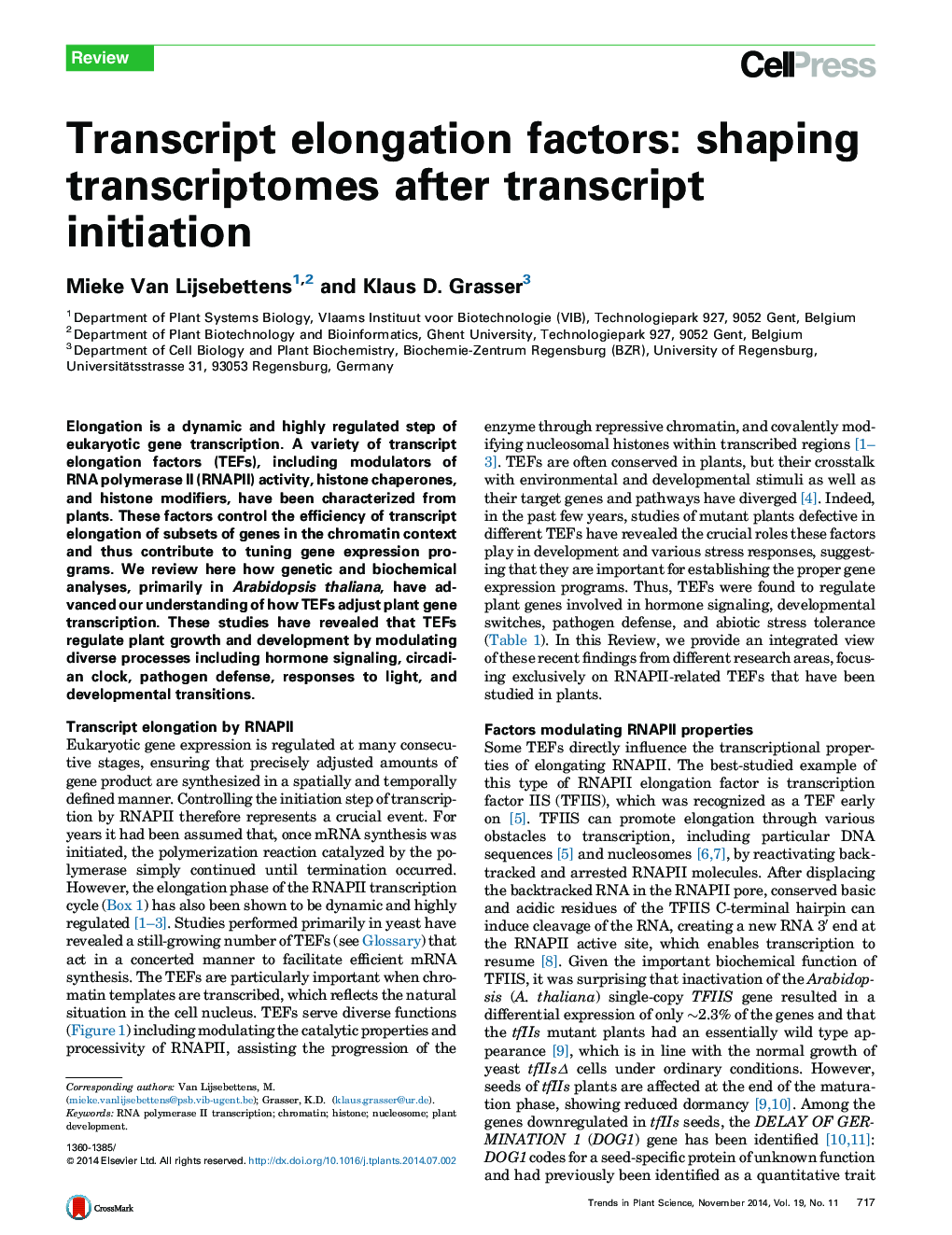| Article ID | Journal | Published Year | Pages | File Type |
|---|---|---|---|---|
| 2826095 | Trends in Plant Science | 2014 | 10 Pages |
•Factors regulating transcript elongation contribute to the control of gene expression.•They facilitate RNA polymerase II progression through chromatin.•Elongation control is involved in shaping transcriptomes and adjusting plant growth and development to internal and external cues.
Elongation is a dynamic and highly regulated step of eukaryotic gene transcription. A variety of transcript elongation factors (TEFs), including modulators of RNA polymerase II (RNAPII) activity, histone chaperones, and histone modifiers, have been characterized from plants. These factors control the efficiency of transcript elongation of subsets of genes in the chromatin context and thus contribute to tuning gene expression programs. We review here how genetic and biochemical analyses, primarily in Arabidopsis thaliana, have advanced our understanding of how TEFs adjust plant gene transcription. These studies have revealed that TEFs regulate plant growth and development by modulating diverse processes including hormone signaling, circadian clock, pathogen defense, responses to light, and developmental transitions.
